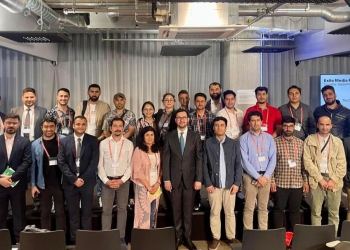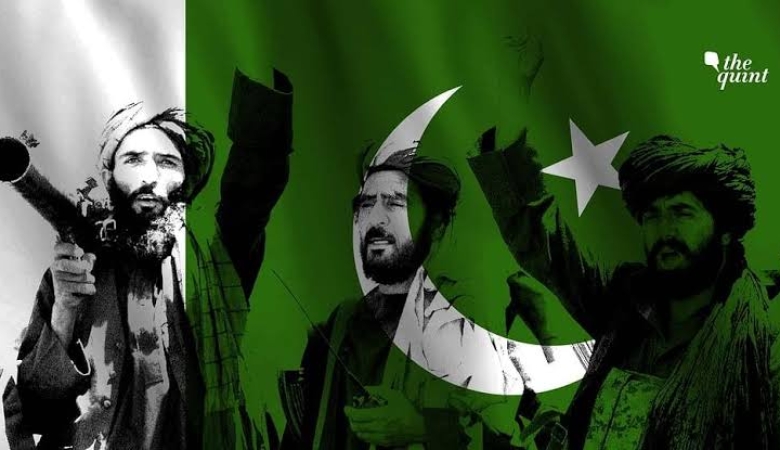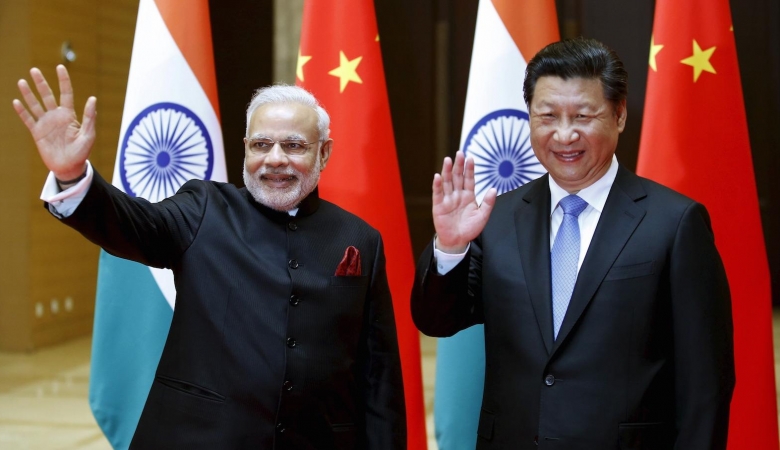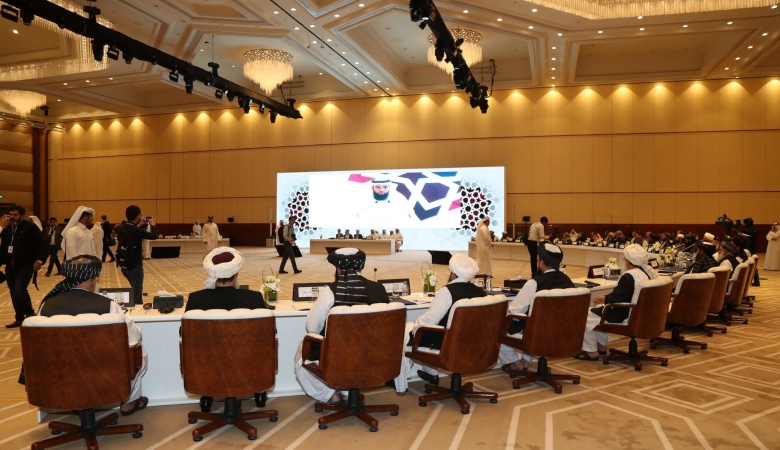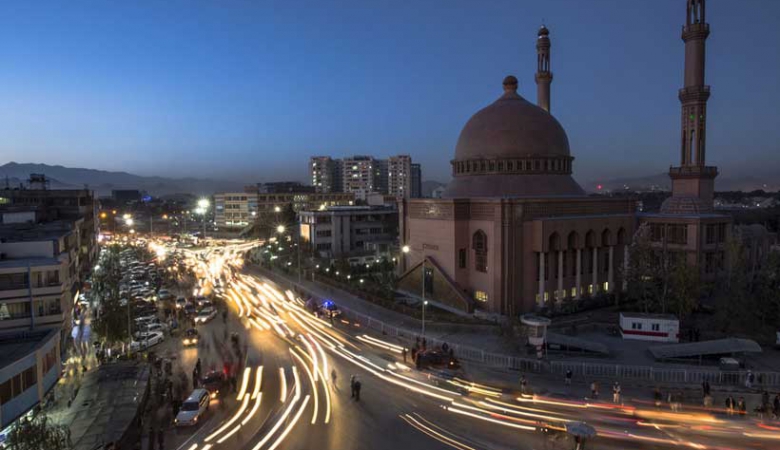- Nazeer Sahaar|Heidelberg, Germany
- Hits: 968
Challenges and Prospects for Exiled Afghan Journalists
On a chilly night in January 2022, a sizable cargo plane disembarked 242 of Germany's Afghan local staff, known as "Afghanische Ortskräfte," along with their family members at Hanover Airport. Among the passengers were dozens of journalists and their families who had fled Afghanistan through Germany's Reporter ohne Grenzen (RSF) and other agencies. One of these individuals was Azimullah, who had worked for three years at a local radio station in northern Afghanistan, supported by foreign forces. Azimullah was relieved to have escaped the Taliban's threats, yet he was deeply troubled by the uncertainty of finding opportunities in his profession within this new setting.
This anxiety is shared by numerous journalists living in exile in the West, particularly in European countries, due to the backdrop of war, threats, and persecution. Many of these journalists, aged between 30 and 50, possess specialized education and ample work experience, yet find themselves with limited options in their new surroundings. Consequently, they either involuntarily switch careers or seek fresh prospects through technical and supplementary trainings.
Preserving Professional Identity
One of the most significant and visible challenges of immigration and exile is the involuntary shift in one's career. This type of change, distinct from a voluntary and planned career shift, is often forced and not by choice. Unlike voluntary transitions, where individuals can choose from various opportunities for their preferred job and work environment, such choice is rarely available. External factors and uncontrollable circumstances often drive these career changes, leading to an impact on a person's professional identity, personality, and communication networks.
The experiences of the past two generations of Afghan exiles and immigrants underscore that a majority inadvertently altered their career paths, subsequently guiding the next generations' choices through processes of social integration and environmental adaptation. During the rise of the Mujahideen, Afghan journalists in Western countries couldn't establish exile journalism to a substantial degree due to linguistic disparities and economic hardships, which forced them to relinquish their professional identities. Conversely, Pakistan and Iran experienced active exile journalism (Jihadi journalism) thanks to shared language environments, a sizable refugee population, receptive audiences, and compelling driving factors. New exiled journalists are grappling with the same predicament, contending with separation from their field of work and limited, insular relationships within their host societies. These factors compound the challenges of losing their professional identity and prospects, alongside the social, cultural, and psychological adjustments to the new environment.
Afghanistan's marginalized political stance in Western countries and Kabul's absence from the global stage have diminished its media coverage value. Consequently, job opportunities for Afghan journalists within Western media have dwindled. European media, particularly German and French-speaking outlets, exhibit limited interest in recruiting exile journalists and initiating training programs. Additionally, mastering a new standard journalistic language represents a lengthy undertaking.
Azimullah, who sought exile to safeguard his safety and professional identity, contemplates leaving his profession. He observes that exiled media outlets are financially constrained, opportunities are scarce, and host countries prioritize rapid workforce training to fulfill labor market needs. Consequently, many journalists are compelled to abandon their professional identities and venture into other domains.
Increasing Individual Reporting
According to evaluations by the international network of investigative journalists, the past 15 years have witnessed the rise of digital content distribution channels (social media platforms), transforming exile journalism and offering journalists better tools to preserve their professional identities compared to previous decades. Some Afghan journalists have become active in newly established exile media, while others contribute to Pashto and Dari services of host country media. A subset of journalists aims to maintain their presence in foreign and Afghan media as analysts and experts.
The Afghan Independent Journalists Association estimates that since the overthrow of the Afghan republican government, around 60 national and local television channels, 117 radio stations, 49 print publications, and 21 news agencies have shuttered due to political and financial challenges. This upheaval has rendered over 8,000 media professionals unemployed, accounting for 60 percent of the workforce. More than 1,580 individuals have sought refuge in the United States, Canada, and European countries, particularly Germany, France, and Spain.
For exile journalists, maintaining connections with their home environment is vital from a professional standpoint. Physical distance from the events necessitates reliance on domestic journalists to cover the geographical gap. Staying connected and cultivating relationships with active news sources helps secure the future of exile journalism. Exiled journalists often concentrate on data and information that their domestic counterparts might be unable to share and publish due to Taliban restrictions and the constrained, one-way flow of information.
The proximity of reporters to events bolsters the value of news content, as increasing distance weakens reporting accuracy and credibility, possibly leading to propaganda and a skewed narrative. Consequently, both domestic and host audiences adopt a cautious stance toward content shared by exile journalists, affecting audience engagement and news dissemination speed.
Terje S. Skjerdal, a media studies professor at NLA University in Norway, emphasizes that many exiled journalists are not entirely trustworthy, often veering away from objective journalism to activism. He highlights that the challenge arises when journalists abandon their professional objectivity.
The use of social networks and diverse platforms against authoritarian regimes has diminished censorship, but it has also fostered individualism. This phenomenon, termed individual journalism, lacks the depth of professionalism, journalistic values, norms, and standards. Anyone can produce and share news content based on their capabilities, resources, interests, and proximity to news events. While this form of journalism may contribute to rumors and propaganda, transforming it into network journalism with a dedicated news outlet could enhance its value and credibility.
While these initiatives currently exhibit limitations in scope and coverage, occasionally being influenced by their geographical distance from the primary event locations for accurate news broadcasting, they hold the potential to evolve into viable alternatives over time. Organizations that provide support to journalists can also play a role in establishing more comprehensive coordination and communication networks among Afghan journalists.
Host Policies and Initiatives
Last year, the German Foreign Office and the German Federal Commissioner for Culture and the Media launched the Hannah Arendt Initiative, a project designed to support journalists, media experts, and advocates of freedom of expression. This protection program collaborates with DW Akademie, the European Fund for Journalism in Exile (JX-Fund), MiCT – Media in Cooperation and Transition, and the European Center for Press and Media Freedom (ECPMF).
Last year, the Körber Stiftung organized a conference in Hamburg to facilitate coordination and communication among exiled journalists. In this year "Exile Media Forum 2023" unfolded in September 12, coinciding with Hamburg's Freedom Week. The event was initiated by the Körber Stiftung in collaboration with organizations like Jx-Fund and ECPMF. It brought together approximately 100 journalists and media experts from across the globe, including exiled Afghan journalists who shared their perspectives on the state of media and journalism in Afghanistan. The German government and related entities have undertaken further actions following the initial phase of securing Afghan journalists' safety and evacuation. However, these measures remain somewhat inconspicuous due to limited coverage. A pressing matter involves categorizing and integrating journalists, writers, human rights advocates, and academic members. Initial steps, such as seminars, workshops, and short-term scholarships, have been taken, albeit without encompassing all eligible journalists. Journalists evacuated through avenues outside journalists' unions are not within the unions' purview. Similarly, human rights activists, writers, and university professors evacuated under the umbrella of journalist unions aren't included in the programs of human rights organizations and academic institutions in Germany.
Salem Sarwari, a journalist with more inclination toward human rights reporting than advocacy, was evacuated with a group of human rights defenders. He, however, feels uncomfortable with human rights-related initiatives. According to him, relevant departments should categorize evacuated Afghans based on their professional experience and then integrate them into supportive programs. The lack of coherence leads to abandoning significant initial measures like the Hannah Arendt Initiative.
Embracing a Fresh Start
For exile journalists and professionals in other fields, the challenge lies in rebuilding from scratch. Counseling, capacity-building programs, and short-term training courses are essential to help them find work opportunities and establish themselves in the new environment and job market. These programs facilitate assimilation, establish professional networking ties, and integrate journalists, human rights advocates, writers, and academic members into their respective unions. Enhancing the unity and coordination of Afghan journalists with relevant bodies and supporting organizations can be achieved through the implementation of more effective network journalism strategies. This collaborative approach has proven highly beneficial for exiled journalists hailing from diverse nations. Russian, Belarusian, and other exile journalists critical of autocratic regimes have successfully established and expanded exile media through coordinated, professional interaction with new environments under a shared framework. Afghan journalists stand to benefit from these experiences.
-
Aug 17, 15:29 pm
Challenges and Prospects for Exiled Afghan Journalists




